TELEPHONES ANSWERED 24 HOURS A DAY
Recent Blog Posts
Illinois Police May Search Your Luggage, Even Without a Warrant
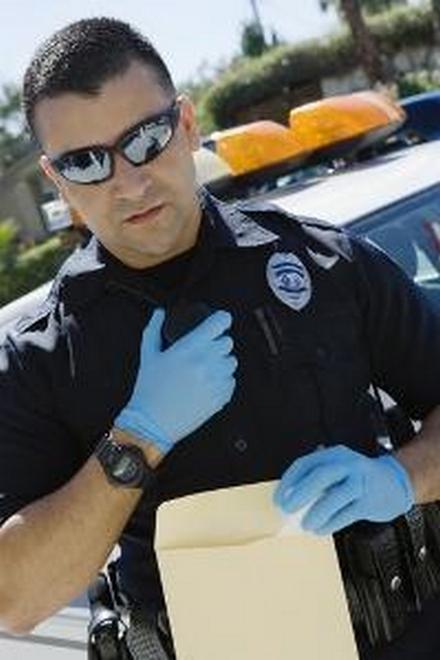 Earlier this year, the Illinois Supreme Court drastically expanded the scope of drug searches that police may conduct without a warrant. Normally, the Fourth Amendment requires police obtain a warrant from a judge before searching a person's home or belongings. There is a long-recognized exception to this requirement for searches that take place “incident to arrest.” This exception allows police to conduct an immediate search of a person under arrest, without a warrant, to ensure he or she is not carrying weapons that might endanger the officer's safety or, alternatively, to prevent the concealment or destruction of evidence related to the arrest.
Earlier this year, the Illinois Supreme Court drastically expanded the scope of drug searches that police may conduct without a warrant. Normally, the Fourth Amendment requires police obtain a warrant from a judge before searching a person's home or belongings. There is a long-recognized exception to this requirement for searches that take place “incident to arrest.” This exception allows police to conduct an immediate search of a person under arrest, without a warrant, to ensure he or she is not carrying weapons that might endanger the officer's safety or, alternatively, to prevent the concealment or destruction of evidence related to the arrest.
In other words, if police arrest a person for illegal drug possession, they may search the person or any area “under his immediate control” to locate evidence related to said drug possession. But what about when the person is under arrest for a non-drug-related charge? Can police still conduct a warrantless search for drugs?
Judges May Not Impose Harsh Sentences Without Cause
 The importance of having a qualified Illinois criminal defense attorney cannot be overstated when a person faces serious federal or state drug charges. Prosecutors and judges often deal with drug offenders harshly—in many cases, too harshly. Zealous representation is often the only safeguard a person has when facing years, if not decades, in prison.
The importance of having a qualified Illinois criminal defense attorney cannot be overstated when a person faces serious federal or state drug charges. Prosecutors and judges often deal with drug offenders harshly—in many cases, too harshly. Zealous representation is often the only safeguard a person has when facing years, if not decades, in prison.
An Unexplained Sentence
A recent decision by the 7th U.S. Circuit Court of Appeals in Chicago illustrates how good representation can protect a client's interests. The defendant in this case pleaded guilty to possessing more than 750 grams of heroin. While he did not contest his guilt, his attorney still proved invaluable when it came to sentencing.
In federal drug cases, judges must adhere to a series of guidelines published by the United States Sentencing Commission. These guidelines establish “ranges” based on a defendant's crime and past record. Prosecutors and defense attorneys may then argue for adjustments upward or downward from the sentencing range. The judge determines the ultimate sentence, but any significant departure from the guidelines must be explained.
Survey Shows Rockford Leads Illinois in Drunk Driving Arrests
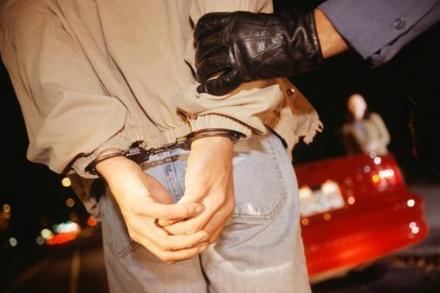 On July 1st, the Alliance Against Intoxicated Motorists (AAIM) released its annual survey charting arrests for driving under the influence throughout the State of Illinois. AAIM is a citizens’ group, partly funded by the Illinois Department of Transportation, that focuses on helping victims of drunk driving in the State of Illinois. The group is perhaps best known for its “Drunkbusters” program, which encourages citizens to report drunk or erratic driving to police.
On July 1st, the Alliance Against Intoxicated Motorists (AAIM) released its annual survey charting arrests for driving under the influence throughout the State of Illinois. AAIM is a citizens’ group, partly funded by the Illinois Department of Transportation, that focuses on helping victims of drunk driving in the State of Illinois. The group is perhaps best known for its “Drunkbusters” program, which encourages citizens to report drunk or erratic driving to police.
AAIM Actions
For more than 20 years, AAIM has surveyed state and local police departments throughout Illinois to document DUI arrests. According to the most recent survey, which included more than 700 police departments and covered drunk driving arrests in 2013, the Rockford police recorded the most DUI arrests of any department for the seventh consecutive year. Rockford tallied 556 arrests, which actually represented a 20 percent decrease from 2012. Naperville finished a close second with 553 arrests, followed by Decatur (485), Springfield (410), and Carol Stream (392).
Police Not Responsible for Failing to Record Audio of DUI Stop
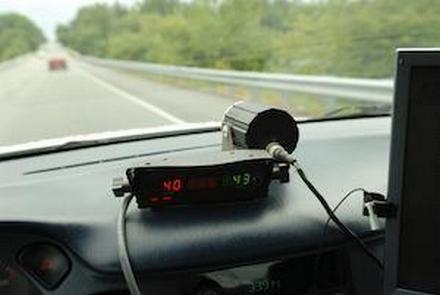 In an age of mass surveillance, it is no surprise police officers routinely record traffic stops using dashboard cameras. These cameras often provide valuable evidence in drunk driving cases. The proper use of such evidence was the subject of a recent decision by an Illinois appeals court.
In an age of mass surveillance, it is no surprise police officers routinely record traffic stops using dashboard cameras. These cameras often provide valuable evidence in drunk driving cases. The proper use of such evidence was the subject of a recent decision by an Illinois appeals court.
Specifics of the Appeal
The appeal dealt with a trial judge's decision to exclude all evidence obtained from a police dashboard camera during a 2012 traffic stop. Police in the Cook County village of Orland Park stopped a driver going approximately 15 miles per hour over the speed limit. According to the officers, the driver “had glassy/watery eyes, his breath smelled of alcohol, and he stated that he drank two beers.” The officers administered a number of field sobriety tests, which the driver failed.
A police dashboard camera recorded the entire stop, including the sobriety tests. During pre-trial discovery, the driver requested the recording. The prosecution complied, but the defense discovered the recording was limited to video. Apparently, the officers “forgot to activate” the device responsible for recording audio before approaching the driver.
Distinguishing Between “Reasonable Suspicion” and “Probable Cause” in Justifying Drug Searches
 Although the Fourth Amendment to the United States Constitution requires police to obtain a warrant based on “probable cause” before searching a person's property, the Supreme Court has long recognized a lower standard of proof when it comes to police stops of vehicles. In these cases, police may search a person's car or other vehicle based on “reasonable suspicion” of “possible criminal behavior.” A court must examine the “totality of the circumstances” in determining whether a police officer's suspicion is reasonable.
Although the Fourth Amendment to the United States Constitution requires police to obtain a warrant based on “probable cause” before searching a person's property, the Supreme Court has long recognized a lower standard of proof when it comes to police stops of vehicles. In these cases, police may search a person's car or other vehicle based on “reasonable suspicion” of “possible criminal behavior.” A court must examine the “totality of the circumstances” in determining whether a police officer's suspicion is reasonable.
Recent Case in Illinois
An Illinois appeals court panel recently reversed a trial court's decision to suppress evidence from a traffic stop that uncovered evidence of illegal drug possession. The stop took place in March 2012. Police had information that a specific truck was likely involved in the transport of illegal drugs from the Mexican border to Chicago. The truck was spotted at a Chicago hotel. The driver, a woman, was on a Drug Enforcement Administration list of persons “involved in a narcotics trafficking organization.”
Supreme Court Says Police Need Warrant to Search Cellphones
 May the police search your cellphone without a warrant? On June 25, the United States Supreme Court said that in most cases, the answer is “no.” The Court ruled in two cases where police seized and searched a suspect's cell phone without a warrant. Federal and state officials argued that such searches, when conducted as part of an arrest, do not violate the Fourth Amendment to the United States Constitution. The Supreme Court disagreed.
May the police search your cellphone without a warrant? On June 25, the United States Supreme Court said that in most cases, the answer is “no.” The Court ruled in two cases where police seized and searched a suspect's cell phone without a warrant. Federal and state officials argued that such searches, when conducted as part of an arrest, do not violate the Fourth Amendment to the United States Constitution. The Supreme Court disagreed.
Riley v. California
The first case reviewed by the Court involved a man in California initially stopped for a minor traffic violation and driving with a suspended license. Police searched the man's car and discovered illegal firearms. Police arrested the man and searched his cellphone without a warrant. The cellphone led police to uncover additional evidence connecting the man to a gang shooting. A jury convicted the defendant on several charges, and the California courts rejected his appeal on the grounds the police illegally searched his phone.
Illinois Court Chides Police for Illegal Pat-Down Search
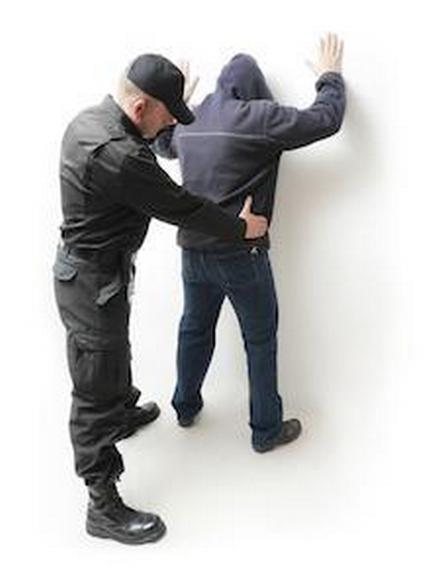 Police officers must have a “reasonable suspicion” before stopping and frisking a person thought to be in possession of illegal drugs. On June 12 of this year, an Illinois appeals court overturned a drug conviction after finding police acted unreasonably in searching a defendant based solely on an uncorroborated witness account that a drug deal had taken place. The court's decision also illustrates the importance of having proper defense counsel in drug cases, as the defendant unsuccessfully represented himself at trial.
Police officers must have a “reasonable suspicion” before stopping and frisking a person thought to be in possession of illegal drugs. On June 12 of this year, an Illinois appeals court overturned a drug conviction after finding police acted unreasonably in searching a defendant based solely on an uncorroborated witness account that a drug deal had taken place. The court's decision also illustrates the importance of having proper defense counsel in drug cases, as the defendant unsuccessfully represented himself at trial.
A Questionable Pat-Down
The case arose from a February 2011 incident involving the defendant and a pair of Chicago police officers. A woman approached the officers and told them she had just purchased illegal drugs from a man on a nearby street corner. She apparently gave the officers a description of the man, although the officers did not provide those details in their official report or later as trial witnesses.
Federal Court Reverses Drug Conviction Based on Faulty Police Affidavit
 Police often use confidential sources to get information in drug investigations. When a source identifies a suspect, police must still obtain a proper search warrant from a judge before acting upon the information. It is incumbent upon the officer to file an affidavit with the court explaining his or her use of a confidential source and furnishing sufficient information regarding the source's credibility. Failure to do so may result in a trial or appellate court rejecting the evidence gathered from the warrant.
Police often use confidential sources to get information in drug investigations. When a source identifies a suspect, police must still obtain a proper search warrant from a judge before acting upon the information. It is incumbent upon the officer to file an affidavit with the court explaining his or her use of a confidential source and furnishing sufficient information regarding the source's credibility. Failure to do so may result in a trial or appellate court rejecting the evidence gathered from the warrant.
Reversed Convictions from 2010 Case
Recently a federal appeals court in Chicago reversed the convictions of an accused drug dealer based on a faulty police affidavit. The appeals court emphasized that it was a “close” call but found the police had failed to provide any meaningful information regarding the credibility of an informant who was instrumental in the defendant's identification and arrest.
Courts Take a Deferential Approach to K-9 Unit Drug Searches
 Police commonly use specially trained dogs—sometimes called “K-9 units”—to assist in detecting the presence of illegal drugs. Last year, the United States Supreme Court clarified the role of such dogs in establishing probable cause to search a defendant's vehicle. The Florida Supreme Court had held that police must establish the dog's reliability by introducing “the dog's training and certification records,” “field performance records,” and “evidence concerning the experience and training of the officer handling the dog,” among other things. The U.S. Supreme Court said such an “exhaustive” demonstration was unnecessary. Instead, prosecutors need only introduce the dog's training records to show it is a reliable detector of possible drugs. The dog's actual record in the field—the number of hits or misses—is not relevant to a probable-cause determination.
Police commonly use specially trained dogs—sometimes called “K-9 units”—to assist in detecting the presence of illegal drugs. Last year, the United States Supreme Court clarified the role of such dogs in establishing probable cause to search a defendant's vehicle. The Florida Supreme Court had held that police must establish the dog's reliability by introducing “the dog's training and certification records,” “field performance records,” and “evidence concerning the experience and training of the officer handling the dog,” among other things. The U.S. Supreme Court said such an “exhaustive” demonstration was unnecessary. Instead, prosecutors need only introduce the dog's training records to show it is a reliable detector of possible drugs. The dog's actual record in the field—the number of hits or misses—is not relevant to a probable-cause determination.
Understanding Your Rights in a Criminal Trial
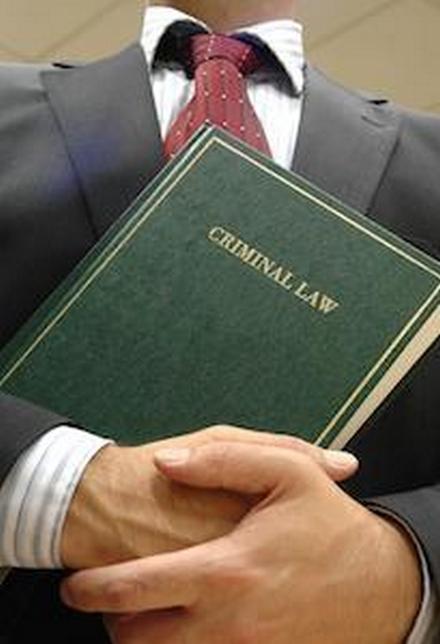 A person facing federal drug charges must always be prepared to assert his or her constitutional rights before and during trial. Once a jury convicts, it becomes much more difficult for a defendant to assert those rights on appeal. A recent decision by the 7th U.S. Circuit Court of Appeals in Chicago illustrates the uphill climb drug defendants face.
A person facing federal drug charges must always be prepared to assert his or her constitutional rights before and during trial. Once a jury convicts, it becomes much more difficult for a defendant to assert those rights on appeal. A recent decision by the 7th U.S. Circuit Court of Appeals in Chicago illustrates the uphill climb drug defendants face.
An Unprompted Confession
The underlying case involved a man accused of possessing and distributing crack cocaine. The Drug Enforcement Administration (DEA) paid the man's nephew to go to his house, purchase cocaine, and then bring the drugs to the DEA. The DEA also fashioned the nephew with an audio/visual device so he could record the purchase.
Based on the recording and the drugs, the DEA agents obtained a search warrant. The agents then sent the nephew back to his uncle's house to make a second drug purchase. Following that, the agents then executed a raid on the uncle's house. During the search, agents detained the uncle and other occupants of the house. At this point, the uncle twice said, “don't worry, everything in that room is mine,” referring to the illegal narcotics agents seized.




